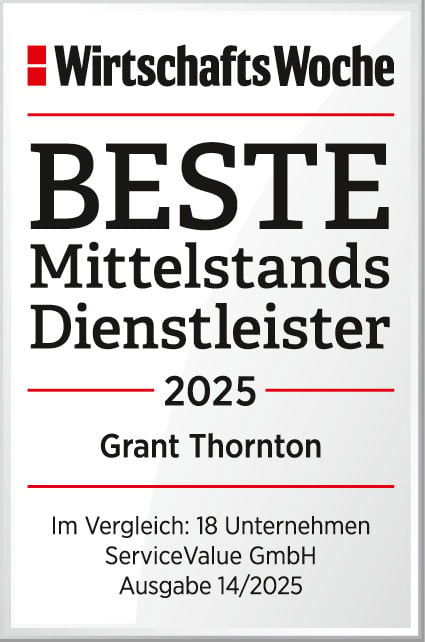Taxes & Compliance in Influencer Marketing

Why the topic of "influencers and taxes" is now more relevant than ever
The tax authorities are tightening their audits in the area of influencer marketing across the whole country. With the help of platform data, industry-specific analyses and targeted investigations, both companies and creators are coming more into focus.
This is because tax and social security consequences can be triggered not only by direct cash income, but also benefits in kind such as products, trips or invitations. This applies to the recipients as well as to the advertising companies, which must fulfil their obligations to provide correct declarations and documentation.
The result: Increasing compliance requirements and tax diligence issues for companies and creators. We keep you informed about the latest developments – and offer tailored advice on your tax and legal issues upon requested.
The most important tax aspects in influencer marketing
In influencer marketing, creativity and tax law meet directly. There are clear rules for both businesses and creators to handle respective services correctly. The following key aspects show which tax issues are in focus – and where there is a need for action.
Evaluation cooperations correctly
Whether it's a fee, product sponsorship or event invitation – the benefits can trigger different tax consequences. Companies must ensure the correct treatment.
Correct assessment of benefit in kinds
Products, events, or trips may be taxable for recipients. Companies may need to apply Section 37b flat-rate taxation, and expenses may be non-deductible for income tax purposes.
Documentation and reporting obligations
From invoices to the artists’ social security fund: When working with influencers, ensure proper invoicing and reporting to avoid back payments after audits.
Taxes & Levies
Income from cooperations, affiliate links or platforms is usually subject to tax – regardless of the amount.
Barter Deals & In-Kind Benefits
Free products, travel, or services count as income. Tax may be based on company costs or market value, e.g., for VAT.
International cooperations
Special rules often apply in regard to advertising services for foreign contractual partners: From a VAT perspective, the reverse-charge mechanism must be taken into account.

Tax obligations in the Influencer-Marketing
From contracts to benefits in kind and reporting: Learn how to structure cooperations tax-compliantly and avoid risks.

Keep taxes in focus
Fees, sponsorships or barter: Find guidance on tax assessment, documentation, reporting, and effective planning of payment obligations.

Keeping an eye on the artists' social security fund
Whether creator or company: The KSK regulates compulsory insurance and contributions - in case of violations fines of up to €50,000 may apply.
Influencer marketing in focus
View more






We advise, you benefit!





Our awards






Influencer campaigns have since long become integral part of modern brand communication – and thus also a tax-relevant business area.
For companies, this means that everyone has to work hand in hand from marketing to legal and finance to tax and HR. From the correct drafting of contracts to the evaluation of services to the strategic use of tax leeway – this is what decides whether a cooperation runs smoothly or turns into a challenge.
The foundation for a smooth cooperation with influencers is already laid in the contract.
Clarify which services are part of the contract, how they will be evaluated and assessed, whether further benefits should be granted in addition to the contractually agreed services and whether the company can apply the flat-rate taxation according to § 37b EStG.
Record the result – a clear regulation prevents discussions with the tax office and the recipient knows what items are taxed by the company and what items have to be taken into account within his own tax declaration.
Products, trips or event invitations are often taxable benefits in kind – even if there is no cash flow.
Generally, the assessment basis for wage tax purposes as well as for VAT are the actual costs of the company. However, in some cases, the fair market value might be the relevant basis for wage tax. The assessment basis should be documented in a comprehensible way and evidence such as price lists or invoices be kept for audit purposes.
Special VAT rules apply to influencer(advertising) services, especially in the case of cross-border cooperations.
Check whether the reverse charge procedure applies or whether German VAT must be charged. Be cautious with barter-deals: VAT liability may arise even in the lack of cash-payments.
In addition,accurate invoicing is essential to preserve the right to deduct input VAT and to avoid unnecessary cash-flow disadvantages.
Through DAC7 and other regulations, tax offices are increasingly receiving data directly from platforms. Align your internal processes to ensure that reported data and tax returns are consistent.
Maintain a central overview of all influencer collaborations – including invoices, service descriptions and other tax receipts – to be able to react quickly in the event of a tax audit.
When German companies engage influencers based abroad, German withholding tax under Section 50a ITA may apply. In this case, the company must register, withhold 15.825% and remit it to the Federal Central Tax Office.
Double Tax Treaties (DTAs) can reduce or eliminate this burden – but only with an exemption certificate or through lengthy refund procedures. Without a DTA, e.g. for influencers resident in Dubai, the tax becomes final. If the withholding is omitted, the company is liable for the unpaid tax.
Appear professional – even in front of the tax office
Whether full-time or part-time, those who earn money with content are increasingly coming into the focus of the authorities.
In addition to creative skills, a structured approach to the financial side of work is therefore also important. Clear processes, traceable records and knowledge of relevant regulations help to manage one's own brand not only successfully, but also in a legally compliant manner.

Correct assessment of International Cooperations

Observe the small business regulation

These types of income must be taxed

Barter Deals handled correctly

Documentation obligations
Safely through the tax jungle
Being well informed is the first step – making the right tax decisions is the next.
Whether you want to structure your revenues, evaluate barter deals correctly or handle international cooperations securely: We support you with clear answers and practical advice.
The artists' social security fund affects companies and creators in the same manner.
In addition to tax issues, social security contributions are also a decisive factor in influencer marketing. The Artists' Social Insurance Fund (KSK) plays a special role in this context.
The KSK ensures that self-employed artists and publicists are included in the statutory social security system – and according to the current interpretation, this also includes influencers.
This has consequences for both sides: Creators must check whether they themselves become a member of the KSK, while companies may be obliged to pay relevant contributions and file declarations to the KSK.

-
Filing obligations: Anyone who pays more than €700 per year (from 2026: €1,000) to self-employed artists or publicists must pay contributions to the KSK (§ 24 KSVG). Influencers are also considered artists in the opinion of the KSK.
-
Regardless of status: The obligation exists even if the creators themselves are not insured in the KSK. Companies of all sizes are affected - from small businesses to large corporations.
-
Reporting obligation: Companies must register pro-actively with the KSK and report fees paid to creators by 31 March of the following year.
-
Obligation to record: All fees must be fully documented; the KSK can request relevant information.
-
Consequences of violations: Fines of up to €50,000.
-
Compulsory insurance: Despite being self-employed, there may be an obligation to pay contributions to pension, health and long-term care insurance through the KSK.
-
No stand-alone insurance: The KSK is only collecting contributions. The choice of a health insurance provider remains free; a change to private health insurance may be possible under certain circumstances.
-
Income threshold: Compulsory insurance only from an annual gross income of €3,900 from artistic activity.
-
Contributions: Amount depends on income, contribution rates and personal factors (e.g. children).
Frequently asked questions about taxes in influencer marketing
Everything that is received in return for a servicecan be taxable – whether it is money, products, travel or services. The tax basis is assessed at the time of the inflow and can differ depending on the tax in question, ranging from the actual costs of the company to the fair market value of the benefit.
Companies can tax certain benefits in kind at a flat rate of 30%. This choice can be exercised once a calendar year for the group of non-employees and binds the company for all benefits in kind to non-employees in the scope of the flat-rate provision.
The application must therefore be documented and the creator informed accordingly. It should be noted, however, that not all benefits from the company can be taxed at a flat rate.
Contracts, invoices, proof of value for benefits in kind, payment receipts and documentation of cooperations (e.g. e-mails, screenshots). All receipts should be kept for at least 10 years.
Service and consideration must usually be assessed at the actual cost. VAT may be payable despite the lack of cash payments. The documentation should include, for example, a contract with service description, as well as evidence of the service provided (screenshots, links, postings).
Document all income and expenses seamlessly, store receipts in a structured way and record tax valuations in a comprehensible way. In the case of complex issues, seek tax advice at an early stage.
Yes. Anyone who is tax resident in Germany must pay tax on income earned worldwide – including income from abroad.
An additional residence in Dubai, Cyprus or Malta is irrelevant as long as the centre of life, family or economic ties exist in Germany or services are performed for German customers.
In addition, when moving to a low-tax country such as Dubai, an extended limited tax liability under the Foreign Tax Act can apply, which lasts up to ten years.
Yes, as long as the revenue limits (€25,000 in the previous year / €100,000 in the current year) are met. In this case, no VAT will be charged and input VAT cannot be claimed.
Since 2024, platform operators have been required to report certain remuneration of their users – including influencers and creators – to the Federal Central Tax Office.
For companies, this means that information about payments to creators are already available to authorities.
For creators, reported amounts must match their own records to be able to react in a timely manner in case of inquiries or audits from authorities.